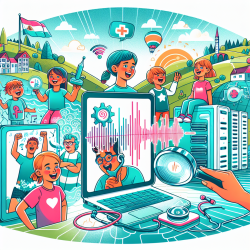As speech-language pathologists, it is crucial to understand the multifaceted beliefs that parents hold about the causes of Autism Spectrum Disorder (ASD). The recent study "Vaccines and autism: a preliminary qualitative study on the beliefs of concerned mothers in Italy" offers significant insights into these beliefs, which can be leveraged to improve practitioner-patient communication and outcomes.
The study involved 18 semi-structured interviews with mothers of children diagnosed with ASD. Four main themes emerged from the content analysis:
- Childhood vaccines
- Genetics
- Specific conditions of the mother or the newborn at the moment of delivery
- Environmental factors such as the mother’s lifestyle or diet
Approximately one-third of the mothers attributed their child's ASD to a combination of these factors. This nuanced understanding highlights the complexity of parental beliefs, which often involve a mix of genetic and environmental factors, including vaccines.
For practitioners, these findings underscore the importance of:
- Listening actively to parents' concerns about the causes of ASD
- Providing evidence-based information in a compassionate and non-dismissive manner
- Addressing both genetic and environmental factors when discussing ASD with parents
Understanding these beliefs can help practitioners tailor their communication strategies, ensuring that parents feel heard and supported. This approach can improve trust and facilitate better healthcare decisions, including vaccination practices.
Moreover, practitioners should be aware of the role of social media and other information sources in shaping parental beliefs. By staying informed about the latest research and engaging in continuous professional development, practitioners can better address the concerns of vaccine-hesitant parents.
In conclusion, the study provides valuable insights that can enhance practitioner skills and improve outcomes for children with ASD. By adopting a data-driven and empathetic approach, practitioners can build stronger relationships with parents and contribute to better health outcomes.
To read the original research paper, please follow this link: Vaccines and autism: a preliminary qualitative study on the beliefs of concerned mothers in Italy










